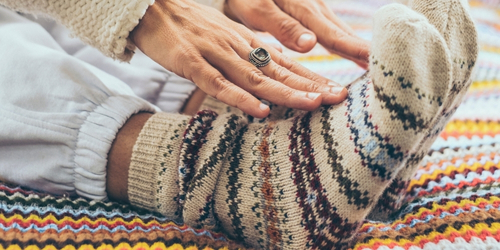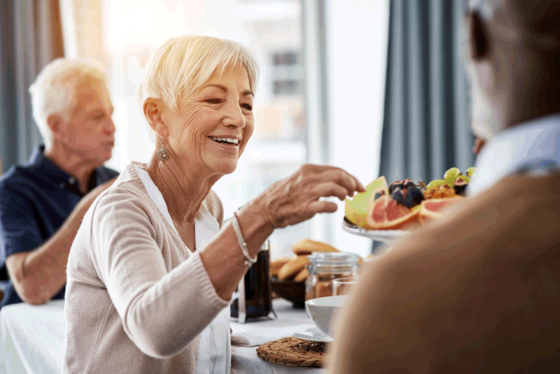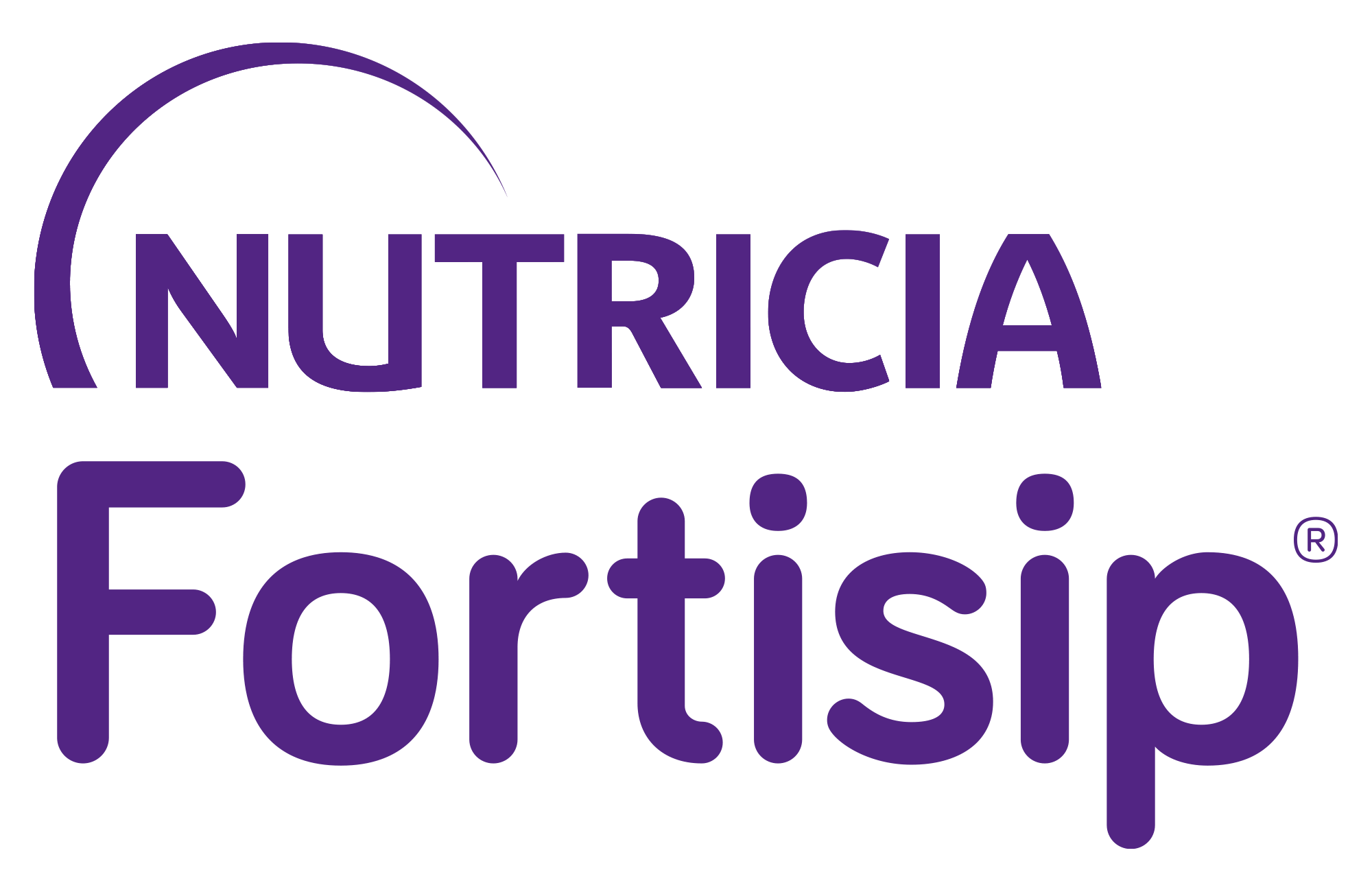Things I Wish I Had During Chemo: A Guide to Feeling More Prepared
Chemotherapy can be a life-saving or –improving cancer treatment, but it can also come with challenges including physical side effects like hair loss, feelings of uncertainty and overwhelm, and ongoing fatigue.1 Depending on the type of cancer you have and the chemo drugs you’re given, you might find yourself feeling energised and healthy one day, but struggling to crawl out of bed the next.1 Preparing for chemotherapy in advance can make a big difference to your treatment experience. Nutrition strategies, mindset shifts and practical planning may help you feel more ready, supported and in control as you progress through your treatment.1,2 Let’s explore some helpful and easy ways you can prepare yourself for chemotherapy, including some first-hand recommendations from previous cancer patients.
What makes chemotherapy and cancer treatment hard?
Chemotherapy can be physically and emotionally demanding.3 The drugs involved can be intense and, while this allows them to do their job, it can come with side effects and challenges too.2,3 Learn more about the side effects of chemotherapy, and what foods can help improve or exacerbate them here. Many people also experience mental and emotional side effects when they are starting treatment.1,2 Uncertainty, anxiety and depression are common when navigating an intense treatment plan, and can make you feel drained, isolated and alone.1,2 Chemotherapy can significantly disrupt your regular lifestyle, particularly if you need to implement dietary changes, attend frequent healthcare appointments, or you’re struggling with side effects like fatigue and low energy.1-3
Ensure you have a solid support system in place and surround yourself with people you can reach out to whenever you need – whether they’re carers, family and friends, or your medical team. This can help you navigate the ups and downs of chemotherapy and feel better equipped for your treatment.4
Feeling prepared for chemotherapy and its potential impacts on your daily life, and knowing you have support around you can be comforting and helpful.4,5.
Packing your chemo bag: what will make cancer treatment easier
Prepare a “chemo bag” you can grab whenever you’re heading to a chemotherapy appointment, to ensure you always have your essentials with you for each treatment.4,5 Compiling a bag for this specific purpose can streamline the preparation process ahead of each appointment. Once you’ve packed your chemo bag once, you’ll feel ready and secure in the knowledge you have everything you need to be comfortable, entertained and nourished throughout your sessions.4,5
Below you’ll find a list of essentials to add to your chemo bag, so you can grab it and go each time you have a treatment planned in hospital – throwing in any additional items like fresh snacks or clothing as needed.4-6
Warm socks, comfortable clothes and a blanket
During chemotherapy your body temperature can fluctuate quite a lot, and it can get quite chilly in the treatment room. It can also cause skin dryness, flaking and itchiness for some people.7 Being prepared with warm, comfortable and comforting clothing can make this more bearable and help to keep you warm and cosy during your sessions.7,8 Pack:
- Loose clothing
- Easy layering items
- Cosy or fuzzy, warm socks
- A soft scarf or blanket
- Moisturiser, to use in case of skin irritation.
Entertainment, distractions and other activities
Chemotherapy sessions can be long, draining and even boring if you’re not prepared. Having distractions on hand can help you pass the time more quickly and reduce any anxiety or stress you may be feeling. Pack:
- Books and/or magazines
- A journal, a great outlet for sorting through and expressing your thoughts and feelings
- Headphones to listen to podcasts or music, or watch a show
- Your phone (goes without saying) and a charger! These appointments can be long – go prepared so you’re not left without any entertainment.
- Board or card games
- A mindfulness app (on your phone).
Healthy snacks and water
When chemotherapy sessions are often long, you may find you feel dehydrated, hungry or low in energy. Packing plenty of nourishing snacks and drinks can help support your energy levels, keep you hydrated and give you strength throughout your treatments.5-8
Pack:
- Water
- Electrolyte drinks
- Herbal teas
- High-protein snacks (nuts, yoghurt and granola, smoothies, protein bars)
- Fortisip® – If your healthcare professional has recommended an oral nutrition supplement (ONS) to help ensure you’re getting the energy and protein you need, Fortisip® can help you meet your daily nutritional needs when your usual diet is not enough.9 An ONS can be particularly useful if you’re struggling to eat, or feeling uncomfortable due to chemotherapy side effects including low appetite, taste changes and mouth sores. Consider adding Fortisip® Compact Protein to your chemo bag so you always have a compact, high-protein and high-energy source of nutrition on-hand throughout your chemotherapy treatments.5-8
Dealing with treatment side effects: nausea and dry mouth relief
Chemotherapy can cause a variety of side effects as mentioned, including nausea, taste changes and dry mouth, skin or lips.1-3,5 Here are a few essential items you can pack in your chemo bag to provide some much-needed relief if you experience these symptoms.
Pack:
- Sugar-free mints or gum, which can stimulate saliva production and relieve a dry mouth when chewed.5
- Ginger chews (or ginger-containing drinks/snacks) to help settle your stomach and reduce nausea.2
- Soda water is a good option if your mouth is dry, you’re finding water tastes bad, or you’re struggling to stay hydrated due to nausea. Sucking on ice cubes can help with hydration too – ask the chemo nurses around you to source some for you during your sessions.2,3
- Dry crackers or bland, dry foods are good snack options if you’re feeling nauseous or finding it hard to keep food down.6
- Lip balm and moisturiser can help hydrate any dry areas and prevent skin cracking and bleeding.5-8

Nutritional recovery and how chemotherapy works
Good nutrition during chemo can make your treatment journey much easier and more bearable. Getting the energy, protein and nutrients you need can help maintain your strength and energy, so you’re better prepared to manage side effects and can achieve the best possible treatment results.1-3,11,12
Some patients find it difficult to eat many foods, and to meet their nutrient needs, due to nausea, loss of appetite and other side effects of chemotherapy.1,11,12 This is when it’s important to find practical solutions to help you consistently get the nutrition you need – even when you don’t feel like eating, or it’s painful and uncomfortable to do so.
Some of these strategies include prioritising high-energy, high-protein drinks, snacks and meals including smoothies and soups.11 Oral nutrition supplements (ONS) may also provide a more compact, comfortable way to increase your protein and energy intake when eating solid food is challenging. Fortisip® is high in calories to help maintain your bodyweight when you’re unwell or recovering from illness,9 and a good source of protein to support the maintenance of muscle mass.10 It can be added to many different recipes to help you meet your daily nutritional needs when your usual diet isn’t enough.9
Fortisip® is a food for special medical purposes and must be used under medical supervision.

How to mentally prepare for your first infusion
Chemotherapy is just as much a mental battle as a physical one, so implementing strategies to support your emotional wellbeing is essential.3 Here are some actionable tips to help you stay resilient, even when things feel challenging or overwhelming.
Accepting emotional highs and lows
As discussed, chemo is a big burden on your physical and mental health, and how you feel while undergoing treatment can vary significantly day-to-day.1-3 Show yourself kindness and compassion throughout the journey and recognise you’re not alone in experiencing the full spectrum of highs and lows.
Some days you’ll feel more emotionally volatile or vulnerable, while others you’ll be more positive, hopeful and energised.4-6 However you feel in the moment is completely valid and understandable.
Seek out cancer support groups so you can connect with others going through similar struggles, allowing you to feel less alone and isolated.13
If you’re able to connect with a psychologist, therapy is another excellent strategy to help you navigate the emotional highs and lows experienced in chemo – it ensures you always have a safe space to express your most honest, intimate thoughts and feelings, and can process these with the guidance and support you need.14
If this isn’t accessible for you, try a guided meditation app to help you feel more grounded and in-control of your mind and emotions.4 A meditation practice can teach you to detach from the heavy thoughts and feelings you encounter along the way.
These tools are all helpful methods of accepting and moving through the inevitable ups and downs you experience throughout chemotherapy.
Letting go of the results and a prognosis mindset
At some point during chemotherapy, most patients are confronted by some less-than-optimal test results or changes to their prognosis (or the results expected from their treatment or cancer).
Instead of getting attached to ongoing changes and results, try to take a step back and focus on one day at a time.15 Bring yourself back to the present moment whenever you catch yourself catastrophising or imagining the worst-case scenario and consider how you can nurture your body and mind as you navigate today.
If you’re struggling to process unwanted news, reach out to your support system, medical team or an expert mental health professional.13-15 Feeling safe to discuss your emotions and thoughts in these circumstances is vital and can relieve some of the stress and anxiety you may be feeling.13-15

What caregivers can do to help cancer patients
For family and friends of cancer patients, you inevitably want to support your loved one as much as possible as they go through chemotherapy. Simply being by your loved one’s side as they navigate the physical and mental toll of chemo can provide more comfort than you may realise.16-18 Here are some practical ways to help your loved one during this time:
- Organise meals for them, so they don’t have to plan or think about cooking and are able to access nourishing, nutritious meals when they need them most.17,18
- Offer to help with household tasks like cleaning, walking pets, or caring for children especially after they’ve been in treatment.17,18 Always ask them what would be most useful for you to pitch in with, and honour their specific requests or suggestions.
- Drive your loved one to and/or from chemo appointments if they’re happy for you to do so. Sit with them for some of their treatment time if possible – your presence can provide a welcome distraction and source of support.17,18
- Provide ongoing emotional support, whether it’s a check-in text or call or a drop-in visit (if they’ve approved it!), not just on treatment days but consistently.17,18 Continuing to show up lets your loved one know you’re always there if they need you.

Key takeaways
When going through chemotherapy, remind yourself why you’re enduring the treatment if things feel tough. Be as prepared as possible and surround yourself with a support system, as this can help the process and treatment schedule feel more manageable.4-8
- For chemo days, pack a chemo bag in advance, filled with essential items offering comfort, distraction and relief. You can grab it and go each time you have a chemotherapy session, throwing in a few extra items like fresh snacks and clean clothing.4-8 Feeling ready and prepared at any time gives you peace of mind and allows you to feel more in-control throughout the process.
- Nutrition plays a crucial role in supporting your recovery and helping maintain your energy levels during chemotherapy.1-3,10 Pack plenty of nutritious, protein-rich snacks in your chemo bag,11,12 as well as an ONS like Fortisip® to help you meet your daily nutritional needs when your usual diet is not enough,9 if your healthcare professional has recommended it.
- Chemotherapy affects your emotional and mental wellbeing just as much as your physical health, so make sure you’re prioritising emotional support, rest and self-care throughout treatment.1-3.
- Remember, however you feel is valid and understandable – and it’s normal for this to change from day to day!15 Surround yourself with loved ones, family members and healthcare professionals you trust and feel safe to talk to openly, honestly and vulnerably.13-15 Don’t ever be afraid to reach out for help when you need it – support is always available to you.
Fortisip® is a food for special medical purposes and must be used under medical supervision.
This is provided for informational purposes only. It does not replace the advice of a healthcare professional. Please consult your healthcare professional for tailored advice.
References
1 – Cancer Council Victoria. Side effects of chemotherapy [Internet]. Melbourne: Cancer Council Victoria; 2024 [cited 2025 May 02]. Available from: https://www.cancervic.org.au/cancer-information/treatments/treatments-types/chemotherapy/side_effects_of_chemotherapy.html
2 – Cancer Australia. Treatment side effects [Internet]. Australia: Cancer Australia; 2025 [cited 2025 May 03]. Available from: https://www.canceraustralia.gov.au/impacted-cancer/treatment/treatment-side-effects
3 – Cancer Australia. Chemotherapy [Internet]. Australia: Cancer Australia; 2025 [cited 2025 May 01]. Available from: https://www.canceraustralia.gov.au/impacted-cancer/treatment/chemotherapy#how-does-chemotherapy-work
4 – Cancer Council Victoria. Preparing for chemotherapy [Internet]. Melbourne: Cancer Council Victoria; 2024 [cited 2025 May 02]. Available from: https://www.cancervic.org.au/cancer-information/treatments/treatments-types/chemotherapy/preparing-for-chemotherapy.html
5 – Beatson Cancer Charity. Top tips for getting through chemo [Internet]. United Kingdom: Beatson Cancer Charity; 2020 [cited 2025 May 04]. Available from: https://www.beatsoncancercharity.org/the-latest/2020/feb/info-blog-top-tips-for-getting-through-chemo/
6 – National Breast Cancer Foundation. What helps during chemo? [Internet]. Texas: National Breast Cancer Foundation; [cited 2025 May 01]. Available from: https://www.nationalbreastcancer.org/blog/what-helps-during-chemo/
7 – Canberra Health Services. What to pack for cancer treatment [Internet]. Canberra: ACT Government; [cited 2025 May 02]. Available from: https://www.canberrahealthservices.act.gov.au/before,-during-and-after-your-care/coming-for-cancer-treatment/before-you-arrive/what-to-pack-for-cancer-treatment
8 – Cancer Treatment Centers of America. 13 items to bring to your chemotherapy infusion treatment [Internet]. USA: City of Hope; 2022 [cited 2025 May 01]. Available from: https://www.cancercenter.com/community/blog/2022/11/what-to-bring-to-chemo
9 – Watterson C, et al. Evidence based practice guidelines for the nutritional management of malnutrition in adult patients across the continuum of care. Nutr Diet. 2009;66:S1–34.
10 – Food Standards Australia New Zealand. Schedule 4 – Nutrition, health and related claims [Internet]. Canberra: FSANZ; [cited 2025 May 06]. Available from: https://www.foodstandards.gov.au/business/labelling/nutrition-health-and-related-claims
11 – Cancer Council NSW. The importance of eating well [Internet]. Sydney: Cancer Council NSW; 2025 [cited 2025 May 01]. Available from: https://www.cancercouncil.com.au/cancer-information/living-well/nutrition-and-cancer/why-eat-well/
12 – Arends J, et al. ESPEN expert group recommendations for action against cancer-related malnutrition. Clin Nutr. 2017;36(5):1187-96.
13 – Cancer Council Australia. Support groups [Internet]. Australia: Cancer Council Australia; [cited 2025 May 03]. Available from: https://www.cancer.org.au/support-and-services/support-groups
14 – Cancer Council Australia. How connecting with others can support you through your cancer experience [Internet]. Australia: Cancer Council Australia; 2021 [cited 2025 May 02]. Available from: https://www.cancercouncil.com.au/news/how-connecting-with-others-can-support-you-through-your-cancer-experience/
15 – Cancer Council Australia. Emotions and cancer [Internet]. Australia: Cancer Council Australia; 2024 [cited 2025 May 01]. Available from: https://www.cancer.org.au/assets/pdf/emotions-and-cancer-booklet
16 – Cancer Council Australia. Caring for someone with cancer [Internet]. Australia: Cancer Council Australia; [cited 2025 May 04]. Available from: https://www.cancer.org.au/caring-for-someone-with-cancer
17 – Cancer Research UK. How to support someone with cancer [Internet]. London: Cancer Research UK; [cited 2025 May 02]. Available from: https://www.cancerresearchuk.org/about-cancer/coping/family-friends-caregivers/how-support-someone-with-cancer
Related Articles

Cancer and weight loss


